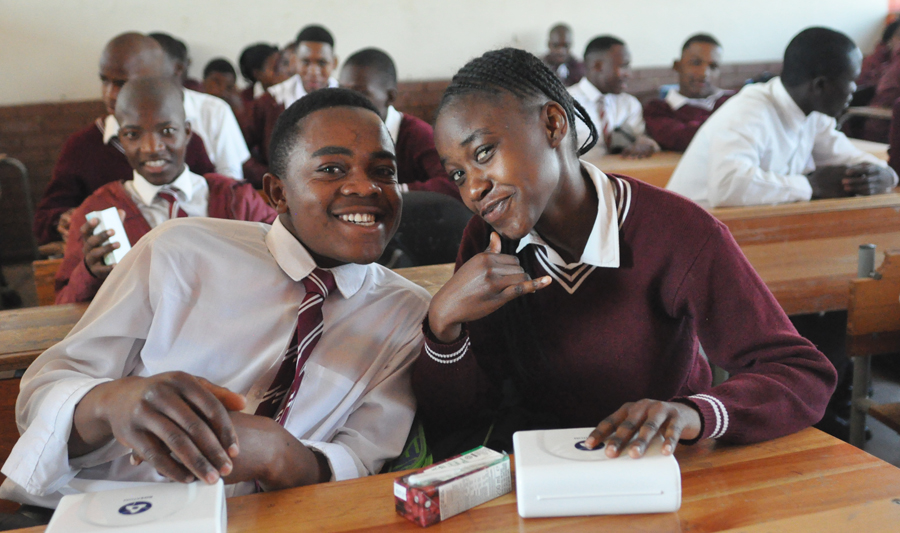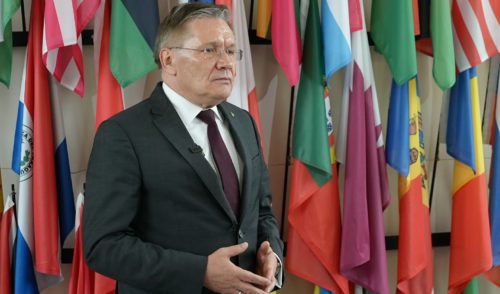
Rosatom Helps Schoolchildren in South Africa
back to contentsThe initiative was timed to coincide with the Nelson Mandela International Day. In observance of the holiday, there are many social and charitable events staged in South Africa to help those in need and make the country a better place.
With dirt all around, broken windows and busted furniture, the laboratory was almost unfit for school classes. The available equipment was insufficient to perform even the simplest experiments. Representatives of Rosatom’s regional office for Sub-Saharan Africa tidied up the lab, cleaned and painted the walls, the floor and the ceiling, threw off the old equipment and lined up new furniture.
In addition to the renovation of the premises, Rosatom bought some necessary equipment – microscopes, burners, chemicals for experiments, teaching aids, as well as tables, chairs, etc. Alongside equipment and furniture, the school received books about the Russian nuclear industry and related education.
“We want to change the world for the better,” noted Viktor Polikarpov, Rosatom’s Vice President for Sub-Saharan Africa. “Nelson Mandela believed in the great power of education. So do we. Education is the key that opens all doors. Hopefully, our humble contribution will help kindle the children’s interest in science and show them that knowledge opens up unlimited opportunities.” Viktor Polikarpov believes that communication with nuclear researchers will spark teenagers’ interest in nuclear physics. “Maybe, we will see them in the near future entering one of Rosatom’s core universities to study this exciting science.”
The students of the Botlhabelo High School live in poor economic conditions, and the school itself is in dire need for renovation. However, 92.86% of its graduates succeeded in their finals last year.
“We pride on our students and are grateful to Rosatom for the help,” said the principal of the Botlhabelo High School. “Experiments in the lab are essential for understanding theory. We hope that the lab modernization will change the children’s lives and strengthen their interest in natural sciences.”
According to Gaopalelwe Santswere, Head of SAYNPS, the students’ academic performance at the Botlhabelo High School testifies to the fact that South Africa has many talents. “There must be more effort to turn children to science. They are future rulers and thinkers of our country” he said. The principal also praised teachers and parents’ contribution which made these results possible.
Rosatom is active in developing the South African education system, organizing student competitions and Olympiads with a trip to Russia as the first prize. Russia signed a number of memorandums in the field of education, staff training and public acceptance of nuclear power, as well as a memorandum on cooperation with the North West University of South Africa.
The country is not new to nuclear technologies. South Africa operates the Koeberg nuclear power station with two pressurized water reactors, 900 MW each. Eskom, a national power monopolist, plans to invest almost 40 billion US dollars in the coal and nuclear power industries over the next five years.
Rosatom’s regional office established in 2012 was but a logical step to promote the corporation’s business in the region. Covering both Southern and Central Africa, the office organizes events to raise public acceptance of nuclear power across the African continent.




